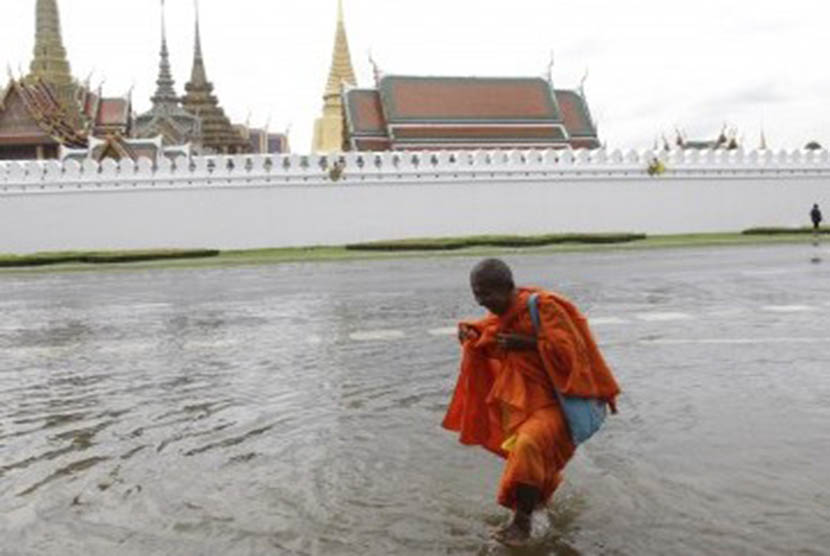REPUBLIKA.CO.ID, TOKYO -- In his annual peace proposal released on January 26, titled "Universal Respect for Human Dignity: The Great Path to Peace," Daisaku Ikeda, president of the Soka Gakkai International (SGI) Buddhist association, calls for intensified efforts to respond to the needs of humanity's most vulnerable, including those displaced by conflict in Syria and elsewhere or by natural disasters.
Ikeda welcomes the adoption of the UN's new Sustainable Development Goals (SDGs) and their ambitious aim of leaving no one behind. He applauds the fact that the 2030 Agenda for Sustainable Development explicitly includes the protection of the dignity and fundamental human rights of displaced persons and international migrants.
He urges renewed focus on the protection of children uprooted by conflict and their educational needs, as well as further support to countries that have taken in large numbers of people fleeing armed conflict and persecution.
Further, Ikeda calls for cooperation among China, Japan and Korea - which together account for one-third of global greenhouse gas emissions - in reducing atmospheric pollution, tackling the problem of dust and sandstorms and meeting their respective targets set out in the Paris Agreement.
Such cooperation could also defuse regional tensions and build "an invaluable heritage of friendship for the future." He stresses that if cities, which account for 75 percent of global carbon emissions, initiate action regarding climate change, local citizens will become motivated and get involved.
Ikeda reiterates the importance of education and learning as a way of empowering individuals to develop proactive responses to such seemingly overwhelming problems, tapping into what Soka Gakkai founder Tsunesaburo Makiguchi called "the courage of application."
In the area of disarmament, he urges the G7 Foreign Ministers Meeting, to be held in Hiroshima in April, to discuss the humanitarian impact of nuclear weapons as well as nonproliferation and the denuclearization of Northeast Asia, in response to North Korea's recent nuclear test.
Ikeda also calls for the strict regulation of the trade in conventional weapons, including small arms - de facto weapons of mass destruction - and proposes that the Arms Trade Treaty, which recently entered into force, be strengthened to this end.
He highlights the contradictions of a world where commitments to positive targets for human well-being such as the SDGs are undermined by the possession of nuclear weapons. He stresses that even a "limited" nuclear exchange could "render meaningless in an instant all of humankind's efforts to resolve global problems."
Ikeda calls on those countries that have still failed to ratify the Comprehensive Nuclear-Test-Ban Treaty (CTBT) to do so to allow it to finally enter into force, and offers proposals for the new Open-ended Working Group set up by the UN General Assembly to address concrete legal measures toward prohibition of nuclear weapons.
He also cites hopeful developments, including the fact that over 120 states have endorsed the Humanitarian Pledge, a commitment to "stigmatize, prohibit and eliminate nuclear weapons," and growing calls for the abolition of nuclear weapons from civil society. He highlights efforts involving faith-based organizations and youth that the SGI has supported, including the International Youth Summit for Nuclear Abolition held in Hiroshima in August 2015.
Daisaku Ikeda has issued proposals to the international community addressing global issues every year since 1983. Philosopher, author and peacebuilder, he has been president of the Soka Gakkai International Buddhist association since 1975. His annual peace proposals are issued on January 26 to commemorate the founding of the SGI.


